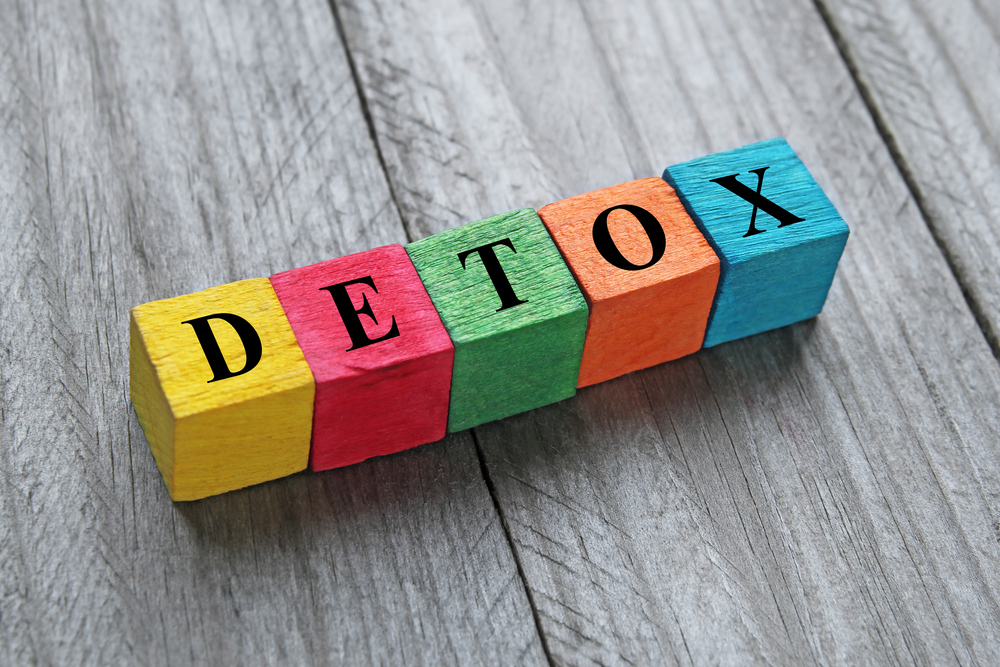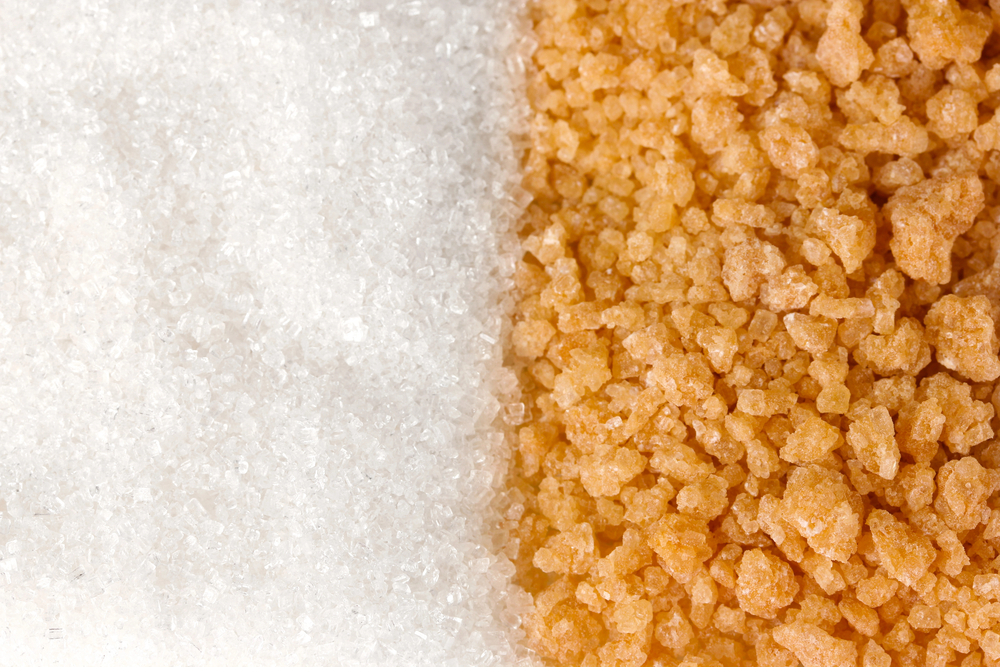
What can you eat during a detox?
You may have heard of one detox. A detox, the abbreviation of the English term detoxification, is a process in which the body is cleansed of harmful substances and toxins that have accumulated over time. These toxins can come from a variety of sources, including alcohol, tobacco, and foods such as fish and shellfish. If you decide to detox, it is better not to eat certain things. We will tell you more about it in this blog!
Why should you watch your food?

During a detox, it is important to pay attention to your food because the goal is of course to cleanse the body of toxins and support the health of the digestive system. Nutrition plays a crucial role in this, because what you eat directly affects the amount and types of substances your body consumes.
By being conscious of your food choices during a detox, you reduce the burden on vital organs such as your liver and kidneys. At the same time, you provide your body with crucial nutrients, antioxidants and fiber. These essential substances are necessary for your body to function optimally. Paying attention to your diet during a detox period will maximize the benefits of detoxification while promoting your overall health.
What should you not eat (or should you avoid eating)
During the detoxification process, it is therefore wise to (temporarily) avoid certain foods and drinks. What you should avoid eating during a detox are processed foods, foods with refined sugars, foods with trans fats, and foods that may contain pesticides or heavy metals. We will explain everything you should not eat during a detox, so that you get a better idea of what it is and is not wise to consume. Better not take:
Processed foods
This includes fast food, chips, cookies and ready-made meals. These foods are usually full of added sugars, artificial colors and preservatives. These are all ingredients that you do not want to ingest while purifying your body. In addition, processed foods are more often packaged in plastic, which contains harmful substances such as Bisphenol A (BPA) and Phthalates that have been linked to several health problems.
Foods with refined sugars

These are products such as soft drinks, sweets and pastries. It is better not to eat these products during a detox because too many sugars are unhealthy for the liver and intestinal flora.
The liver plays a central role in the detoxification process. The liver has only a limited capacity to convert fructose into energy. With a high sugar intake, only part of it can be effectively converted into glucose, the form of sugar used by the body as an energy source. The excess fructose that cannot be used directly for energy needs is then converted into fat by the liver. This process contributes to the development of fatty liver disease.
Additionally, a diet high in refined sugars can promote the growth of harmful bacteria in the gut at the expense of beneficial bacteria. Healthy intestinal flora is essential for an effective detox.
Foods with trans fats
Trans fats are artificial fats created by hardening vegetable oils, a process known as hydrogenation. They are commonly found in processed foods, such as fried snacks, some margarines, bakery products, and ready-made meals.
Trans fats increase LDL cholesterol (the "bad" cholesterol) while simultaneously lowering HDL cholesterol (the "good" cholesterol), which can lead to an increased risk of cardiovascular disease. And just like excessive sugar intake, trans fats can contribute to fat buildup in the liver.
Foods that may contain pesticides or heavy metals - H3
What you should also avoid eating during a detox are products that may contain pesticides or (heavy) metals. These substances can put extra strain on the detoxification organs such as the liver and kidneys and undermine the purpose of the detox.
- Non-organic fruits and vegetables are known to contain pesticide residues, especially those that are not peeled before consumption. Washing and peeling these products can reduce, but not completely eliminate, pesticides. Choosing organic products, where the use of synthetic pesticides is greatly limited, may be a better option during a detox.
- Fish, especially predatory fish such as tuna, swordfish and some species of shark, can contain higher levels of mercury, a heavy metal that is harmful to the nervous system and brain. Limiting consumption of these fish and instead choosing fish with low mercury levels, such as salmon, sardines and trout, can help reduce heavy metal intake.
- Processed foods can also contain contaminants, including pesticide residues and heavy metals, due to the manufacturing process or ingredients used. That is why it is recommended to eat fresh, unprocessed foods during a detox.
- In addition, it is good to know that some types of fruit and vegetables are known for their higher concentrations of pesticides when they are not organically grown. Information about this is regularly published in the form of lists such as the "Dirty Dozen" by environmental organizations, which name the products with the highest levels of pesticide residues. On the other hand, the "Clean Fifteen" have the lowest levels of pesticide residues and are safer to consume even if they are not organic.
What can you eat during detox?
You now know what you should not eat and drink during a detox, but what are you allowed to eat and drink? During a detox, there are numerous foods you can consume that specifically support the liver, kidneys and digestive system. By choosing foods and drinks that nourish these essential organs, you can significantly improve the effectiveness of your detox. But which foods are those exactly?
- Fresh fruits and vegetables: They are rich in fiber, vitamins, minerals and antioxidants. Dark green leafy vegetables such as spinach, kale and chard contain chlorophyll that helps bind and remove toxins from the blood. Berries, apples and citrus fruits are excellent sources of vitamin C, a powerful antioxidant that supports the liver in the detoxification process.
- Whole grains: Quinoa, brown rice, oats and other whole grains provide B vitamins and fiber, which are essential for healthy digestion and supporting the detoxification organs.
- Protein-rich foods: Choose lean protein sources such as chicken, turkey, fish, eggs, and plant-based proteins such as lentils, beans and peas. Proteins are crucial for liver function and support the recovery of liver cells.
- Healthy fats: Avocados, olive oil, nuts and seeds contain monounsaturated and polyunsaturated fats that support liver health and help regulate inflammation.
- Herbal teas and water: It is essential to stay hydrated. Water flushes the kidneys and helps remove waste products. Herbal teas such as green tea, dandelion tea and milk thistle tea provide antioxidant benefits and can support liver function.
- Fermented foods: Yogurt, kefir, kombucha, kimchi and sauerkraut are rich in probiotics. These good bacteria promote healthy intestinal flora, which is essential for efficient digestion and detoxification.
So fortunately there is plenty of what is allowed.
After your detox treatment
We have answered the two questions: “what should you not eat during a detox?” and “what can you eat during a detox?” It is not only important to pay attention to what you eat and drink during detoxification and cleansing, but this is also wise after a period of detoxification. After a detox, it is important to continue the healthy habits you have developed. Make sure you get enough fresh fruit and vegetables, eat as little processed food as possible and drink enough water. Exercise regularly, try to get enough rest and sleep and be a little kind to yourself.
What else you can take after a detox are: detox supplements. These supplements ensure that the cleansing of your body is further supported after the detox treatment. Would you like to know more about what you should not eat during a detox or what you should eat? Or do you want to know more about the supplements? Please feel free contact our specialists are happy to assist you.
